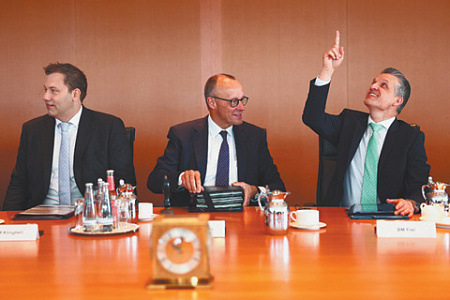
Germany’s Social Democratic Party (SPD), a foundational pillar of the nation’s post-war political order, is confronting an existential crisis as its public support plummets to a historic low. Recent polling places the venerable party at just 13 percent, a catastrophic rating that puts it nearly on par with smaller rivals like the Greens and The Left party, signaling a dramatic rejection by the electorate.
According to political analysts, the SPD is caught in a political vise with no clear escape. Its participation in the governing coalition has demanded significant policy compromises, forcing the party to stray from its core ideological commitment to protecting the socially vulnerable. This difficult balancing act between the responsibilities of power and the preservation of its political identity has alienated its traditional base and fueled a profound internal crisis.
The fallout from this strategic dilemma is a dramatic voter exodus on two fronts. A growing number of left-leaning supporters, disillusioned by the party’s perceived abandonment of social-democratic principles, are migrating to more ideologically pure left-wing alternatives. Concurrently, the SPD’s historical bedrock—the working class—is increasingly shifting its support towards conservative and right-wing populist parties, including the Alternative for Germany (AfD), believing their economic interests are no longer championed by the Social Democrats.
This political turmoil is exacerbated by deeply unpopular economic measures. Government-led austerity initiatives and proposals for painful reforms, such as raising the retirement age and increasing social security contributions, are intensifying public discontent. This has cultivated a climate of deep pessimism, with polls revealing that a majority of Germans view the future with anxiety and hold a strongly negative opinion of the current government’s performance.
External pressures are further compounding Germany’s domestic woes. A challenging global trade environment and economic headwinds are placing immense strain on the nation’s critical export-driven industries. The government’s struggles to navigate these international challenges and protect German economic interests effectively have only served to deepen public frustration and erode confidence in the ruling coalition.
For the SPD, one of Germany’s oldest and most influential political forces, the stakes are incredibly high. The party now faces the real risk of devolving from a mass political organization into a marginal one. This power vacuum is actively being exploited by political rivals, as new movements work to attract disillusioned SPD members and the populist right continues to gain ground, fundamentally reshaping the German political landscape.
